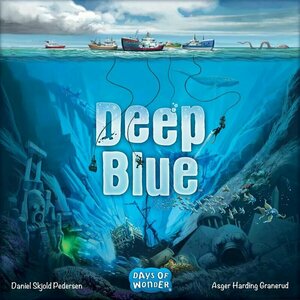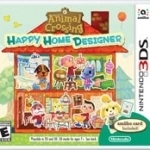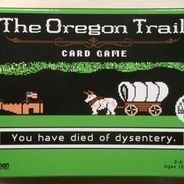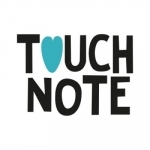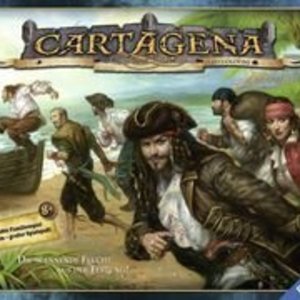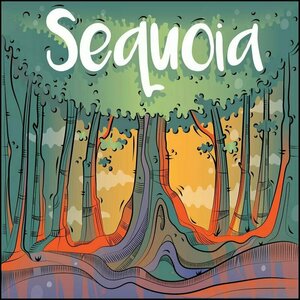Search
Search results
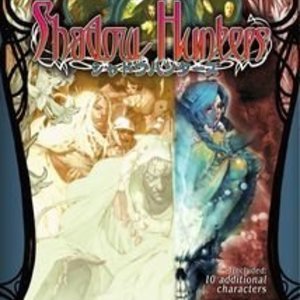
Shadow Hunters
Tabletop Game
Shadow Hunters is a survival board game set in a devil-filled forest in which three groups of...
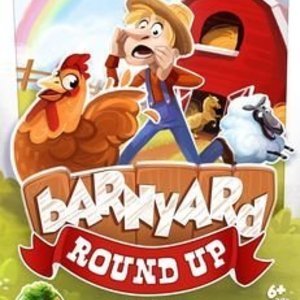
Barnyard Roundup
Tabletop Game
Family bluffing card game, aimed at parents and adults that are bored playing old typical games. Fun...
Purple Phoenix Games (2266 KP) rated Deep Blue in Tabletop Games
Mar 17, 2022
A couple of months ago, Travis was in town, so he and I went over to Josh’s place to get a day of gaming in. It was an awesome time to play together, and to get to experience some new games for each of us. While we were there, we got to talking about some of the games in Josh’s collection, and he pulled out Deep Blue. He’d had it for a while, but had since gotten another game that he felt did the same things but better. So he asked if either of us wanted to take it off his hands. I said sure, as I’d never played the game before. Now that it’s a part of my collection, is it going to stay there? Or will my feelings mirror Josh’s with regards to the gameplay?
Deep Blue is a nautical game for 2-5 players of deck building, hand management, and a bit of push your luck. In it, players take on the roles ship Captains who are racing to collect treasures from undersea wrecks. Players will be hiring Crew members, sailing across the sea, and sending divers down to wrecks to salvage any valuables. The race is on, though, because you are not the only Captain on this treasure hunt… Throughout the game, players will stumble across 4 Wrecks that make up a Sunken City. Once all 4 areas of the Sunken City have been discovered and searched, the game ends. The player who earns the most VP from their collected treasures by the end of the game is declared the winner!
To setup for a game, follow the instructions in the rulebook – there are simply too many to detail here. The basic gist of setup is to create a market of Crew cards, shuffle and randomly distribute Wreck tiles across the board, and create a Gem pool. Each player will receive a player mat and starting cards in their chosen color, as well as 2 ships to be placed on the starting space of the board. Players will also get a treasure chest, in which they will keep their VP throughout the game. Set the Dive Site board, Gem bag, and VP tokens off to the side. Select a starting player, deal out starting tokens accordingly, and the game is ready to begin! Pictured below is the setup for a 3-player game.
On your turn, you will take one of four possible actions: Recruit a Crew Member, Sail, Rest, or Dive. Throughout the game you will be building your personal deck by Recruiting Crew Members. These new Crew offer unique abilities and scoring powers to be used during Dives. In order to recruit a Crew Member, you must pay the corresponding cost listed by its location in the market. To do so, you will play cards from your hand with $ symbols that equal the required cost. Once you play a card from your hand, it goes facedown onto the Rest area of your player mat. Take the Crew Member you just hired directly into your hand, and move the Market cards down to fill in the empty space, drawing a new card for the final slot. If you choose to Sail, you will play a number of cards from your hand with the Propeller icon. The number of icons dictates how many spaces you may sail. You can use all of your movement on one of your ships, or you can break movement across both ships. If you end a move on a face-up Wreck tile, you will ‘anchor’ your boat to one of the open scouting spots. These scouting spots offer special scoring benefits during the Dive on this tile. If you end movement on a face-down Wreck tile, first you will flip it face-up, and then anchor your boat. When landing on a buoy or an empty dive site, nothing happens.
On any turn, you may instead choose to Rest. To perform this action, you will shuffle all cards that reside on the Rest area of your player mat, and then draw only the 3 topmost cards into your hand. This is the action that allows you to refresh your hand, as you play more cards and your hand starts to dwindle. The final action choice is to Dive. This action is the crux of the game. When you have a boat on a Wreck tile, you may choose to start a Dive. The first step is to declare your Dive – decide which Wreck to Dive if your boats are on different Wreck tiles. Before the Dive begins, any opponents who have boats on adjacent Wreck tiles may move their boats to your Wreck in hopes of also profiting from the Dive. When all eligible boats have been moved to the Wreck, you will then officially begin the Dive. Take the Gem bag and Dive Site board. You will then draw Gems out of the bag, one-by-one, resolving them as necessary. Red, Gold, Silver, Green, and Purple gems are treasures, and can earn you VP. Blue and Black gems are Hazards that must be defended against in order to continue the Dive.
After a Gem is drawn and placed on the Dive Site board, players may choose to play a Crew Member to increase their VP earned. For example, one card allows you to earn 8 VP for a Green gem, instead of 0. To defend against hazards, players may play Crew from their hands who have the ability to negate the hazard, or may use the special ability of their scouting spot on the Wreck tile. If you are unable to defend against a hazard, you are forced to resurface and leave the Dive. The Dive continues in this fashion, until either the active player decides to end the Dive, or when they no longer have the ability to defend against hazards. Any players who still have boats at the Dive Site will collect VP from Crew cards they played, as well as a base amount of VP for the different Gems that were drawn. Once a Dive has been performed at a Wreck, that tile is removed from the game, leaving an empty dive site behind. If players have performed a Dive at one of the 4 Sunken City tiles, it is removed from the board, but placed on its corresponding space in the corner of the board. After all 4 Sunken City tiles have been moved to the corner of the board, the game immediately ends. Players will count up all the VP collected throughout the game, and the player with the highest score is declared the winner!
So how do I feel about Deep Blue overall? I would have to say that it’s fine. Just fine. There are some elements that I really enjoy, but others that kind of frustrate me. What I enjoy – the bits of strategy involved, and the awesome components. What I don’t enjoy – the pacing of the game and the imbalance of actions. To touch on the pros first, this game does require some strategy. You have to decide where to Sail, which Crew to recruit, which Crew to play and when to play them, etc. VP are earned by participating in Dives, so you want to make sure you can be at as many Dives as possible. That means keeping ships close to opponents to profit from any dives they may choose to initiate. Another interesting strategic element is the Rest action. You shuffle your discard pile, but then only draw the 3 topmost cards into your hand. You might not always draw what you were wanting, but you are always allowed to take a Rest action, regardless of how many cards are in your discard. There is no hand limit in this game, so do you rest every other turn to ensure you have almost all cards in your hand? Or do you dwindle your hand down in order to perform other actions instead? It’s all about your strategy, and you never quite know what your opponents are trying to do.
Now for the cons. The pacing of the gameplay feels really slow to me. You are only allowed to perform 1 action per turn, so it seems like the game takes a while to really get going. At first, everyone is going to be wanting to Sail, as all players start in the same starting area of the board. You want to get your ships out there ASAP. But then you run out of cards, so you have to take a turn to Rest and get those cards back. You’re taking a bunch of little turns to accomplish any one bigger thing, and that bogs down the gameplay for me. If you were able to perform 2 actions per turn, that would probably alleviate some of this frustration, as it would allow you to progress more quickly than by taking only a single action. Another aspect I mentioned is the imbalance of actions. The Recruit, Sail, and Rest actions all feel to me like they are on the same level, but the Dive action is different. Which in and of itself isn’t necessarily a bad thing. But the process of the Dive action is vastly different than any of the other actions, to the point that it kind of feels like a different game to me. For half of the game, you’re playing this game of strategy, deck building, and optimizing placement across the board. But for the other half, it turns into a push-your-luck frenzy that seems disjointed from the rest of the game to me. No matter how strategic and careful you are with your actions, it ultimately comes down to the luck of the draw.
To touch on components for a minute – the production quality of this game is awesome. The board, Dive Site board, and VP tokens are nice chunky cardboard. The cards are colorful, have cool artwork, and are sturdy. And the treasure chests are awesome little plastic chests that definitely are holding up well. The Wreck tiles are big and thick, the Gems are cute, and the ships are fun to play with. So overall, this game is made very well.
You can probably tell by now that I have mixed feelings about Deep Blue. There are aspects that I like, but other aspects that negate some of those positive attributes. I was psyched for a cool nautical deck builder where I could really flex my strategy, but got more push-your-luck than I was anticipating. Deep Blue will probably stick around in my collection for the time being. But, like Josh, I will probably find something that gives me the same vibes but done better. It’s a game that I’ll pull out from time to time, but definitely not one that’s going to break into my Top 10. With that said, Purple Phoenix Games gives it a sunken 4 / 6.
Deep Blue is a nautical game for 2-5 players of deck building, hand management, and a bit of push your luck. In it, players take on the roles ship Captains who are racing to collect treasures from undersea wrecks. Players will be hiring Crew members, sailing across the sea, and sending divers down to wrecks to salvage any valuables. The race is on, though, because you are not the only Captain on this treasure hunt… Throughout the game, players will stumble across 4 Wrecks that make up a Sunken City. Once all 4 areas of the Sunken City have been discovered and searched, the game ends. The player who earns the most VP from their collected treasures by the end of the game is declared the winner!
To setup for a game, follow the instructions in the rulebook – there are simply too many to detail here. The basic gist of setup is to create a market of Crew cards, shuffle and randomly distribute Wreck tiles across the board, and create a Gem pool. Each player will receive a player mat and starting cards in their chosen color, as well as 2 ships to be placed on the starting space of the board. Players will also get a treasure chest, in which they will keep their VP throughout the game. Set the Dive Site board, Gem bag, and VP tokens off to the side. Select a starting player, deal out starting tokens accordingly, and the game is ready to begin! Pictured below is the setup for a 3-player game.
On your turn, you will take one of four possible actions: Recruit a Crew Member, Sail, Rest, or Dive. Throughout the game you will be building your personal deck by Recruiting Crew Members. These new Crew offer unique abilities and scoring powers to be used during Dives. In order to recruit a Crew Member, you must pay the corresponding cost listed by its location in the market. To do so, you will play cards from your hand with $ symbols that equal the required cost. Once you play a card from your hand, it goes facedown onto the Rest area of your player mat. Take the Crew Member you just hired directly into your hand, and move the Market cards down to fill in the empty space, drawing a new card for the final slot. If you choose to Sail, you will play a number of cards from your hand with the Propeller icon. The number of icons dictates how many spaces you may sail. You can use all of your movement on one of your ships, or you can break movement across both ships. If you end a move on a face-up Wreck tile, you will ‘anchor’ your boat to one of the open scouting spots. These scouting spots offer special scoring benefits during the Dive on this tile. If you end movement on a face-down Wreck tile, first you will flip it face-up, and then anchor your boat. When landing on a buoy or an empty dive site, nothing happens.
On any turn, you may instead choose to Rest. To perform this action, you will shuffle all cards that reside on the Rest area of your player mat, and then draw only the 3 topmost cards into your hand. This is the action that allows you to refresh your hand, as you play more cards and your hand starts to dwindle. The final action choice is to Dive. This action is the crux of the game. When you have a boat on a Wreck tile, you may choose to start a Dive. The first step is to declare your Dive – decide which Wreck to Dive if your boats are on different Wreck tiles. Before the Dive begins, any opponents who have boats on adjacent Wreck tiles may move their boats to your Wreck in hopes of also profiting from the Dive. When all eligible boats have been moved to the Wreck, you will then officially begin the Dive. Take the Gem bag and Dive Site board. You will then draw Gems out of the bag, one-by-one, resolving them as necessary. Red, Gold, Silver, Green, and Purple gems are treasures, and can earn you VP. Blue and Black gems are Hazards that must be defended against in order to continue the Dive.
After a Gem is drawn and placed on the Dive Site board, players may choose to play a Crew Member to increase their VP earned. For example, one card allows you to earn 8 VP for a Green gem, instead of 0. To defend against hazards, players may play Crew from their hands who have the ability to negate the hazard, or may use the special ability of their scouting spot on the Wreck tile. If you are unable to defend against a hazard, you are forced to resurface and leave the Dive. The Dive continues in this fashion, until either the active player decides to end the Dive, or when they no longer have the ability to defend against hazards. Any players who still have boats at the Dive Site will collect VP from Crew cards they played, as well as a base amount of VP for the different Gems that were drawn. Once a Dive has been performed at a Wreck, that tile is removed from the game, leaving an empty dive site behind. If players have performed a Dive at one of the 4 Sunken City tiles, it is removed from the board, but placed on its corresponding space in the corner of the board. After all 4 Sunken City tiles have been moved to the corner of the board, the game immediately ends. Players will count up all the VP collected throughout the game, and the player with the highest score is declared the winner!
So how do I feel about Deep Blue overall? I would have to say that it’s fine. Just fine. There are some elements that I really enjoy, but others that kind of frustrate me. What I enjoy – the bits of strategy involved, and the awesome components. What I don’t enjoy – the pacing of the game and the imbalance of actions. To touch on the pros first, this game does require some strategy. You have to decide where to Sail, which Crew to recruit, which Crew to play and when to play them, etc. VP are earned by participating in Dives, so you want to make sure you can be at as many Dives as possible. That means keeping ships close to opponents to profit from any dives they may choose to initiate. Another interesting strategic element is the Rest action. You shuffle your discard pile, but then only draw the 3 topmost cards into your hand. You might not always draw what you were wanting, but you are always allowed to take a Rest action, regardless of how many cards are in your discard. There is no hand limit in this game, so do you rest every other turn to ensure you have almost all cards in your hand? Or do you dwindle your hand down in order to perform other actions instead? It’s all about your strategy, and you never quite know what your opponents are trying to do.
Now for the cons. The pacing of the gameplay feels really slow to me. You are only allowed to perform 1 action per turn, so it seems like the game takes a while to really get going. At first, everyone is going to be wanting to Sail, as all players start in the same starting area of the board. You want to get your ships out there ASAP. But then you run out of cards, so you have to take a turn to Rest and get those cards back. You’re taking a bunch of little turns to accomplish any one bigger thing, and that bogs down the gameplay for me. If you were able to perform 2 actions per turn, that would probably alleviate some of this frustration, as it would allow you to progress more quickly than by taking only a single action. Another aspect I mentioned is the imbalance of actions. The Recruit, Sail, and Rest actions all feel to me like they are on the same level, but the Dive action is different. Which in and of itself isn’t necessarily a bad thing. But the process of the Dive action is vastly different than any of the other actions, to the point that it kind of feels like a different game to me. For half of the game, you’re playing this game of strategy, deck building, and optimizing placement across the board. But for the other half, it turns into a push-your-luck frenzy that seems disjointed from the rest of the game to me. No matter how strategic and careful you are with your actions, it ultimately comes down to the luck of the draw.
To touch on components for a minute – the production quality of this game is awesome. The board, Dive Site board, and VP tokens are nice chunky cardboard. The cards are colorful, have cool artwork, and are sturdy. And the treasure chests are awesome little plastic chests that definitely are holding up well. The Wreck tiles are big and thick, the Gems are cute, and the ships are fun to play with. So overall, this game is made very well.
You can probably tell by now that I have mixed feelings about Deep Blue. There are aspects that I like, but other aspects that negate some of those positive attributes. I was psyched for a cool nautical deck builder where I could really flex my strategy, but got more push-your-luck than I was anticipating. Deep Blue will probably stick around in my collection for the time being. But, like Josh, I will probably find something that gives me the same vibes but done better. It’s a game that I’ll pull out from time to time, but definitely not one that’s going to break into my Top 10. With that said, Purple Phoenix Games gives it a sunken 4 / 6.
Mothergamer (1613 KP) rated Animal Crossing: Happy Home Designer in Video Games
Apr 3, 2019
I love the Animal Crossing games because for me they are a lot of fun. I really enjoyed Animal Crossing: New Leaf, but I didn't like some of the time constraints that were involved. Plus that Tom Nook really has a racket running the town. I was pretty excited for Animal Crossing: Happy Home Designer the more I read about it. Then I started playing it and I absolutely loved it because there are no time constraints and it's so much fun to play. In the game you are an employee of Nook's Homes and design homes for the various animal villagers based on their interests and suggestions. You can also decide where to place a client's home when the map pops up. A mountain home, a beach house, or a desert oasis are just some of the choices. You don't just design homes however. You can also design a variety of buildings for the town such as restaurants, shops, and a school. Dragging and dropping items is a nice change from the pushing and pulling items to move them. This also makes it easier to fix mistakes or undo something. It's also easier to customize colors and patterns and as you progress you can unlock even more items for your designs.
Oh, a cute little cafe design!
You can also decorate the outside of a client's house, choosing a variety of roof colors, house colors, and items for their yard like gardens and swings. You can also revisit clients and do things like a house upgrade or even redecorate their home for them. Another cool thing is the Happy Home Network. You can upload any house or building you've designed and you can visit other people's homes and rate them. You can take pictures of your designs and post them to social media as well showing off your creative skills which is pretty neat too.
You can design an awesome yard for your clients.
There are also themed contests via the Happy Home network such as a candy house or a Halloween house. There are also Amiibo cards which look like Pokemon trading cards and they work exactly the same way that the Amiibo figures do without all that extra bulk. The Amiibo cards work exclusively with the New 3DS and New 3DS XL. If you want to use them with the old 3DS, 3DS XL, and 2DS you can use the NFC Reader/Writer accessory.
After you've designed a couple of homes, you'll get the whole introduction to the Amiibo cards and how to use them as well as having an Amiibo phone in the Nook's Homes office. You'll be prompted to use an Amiibo card and when you do you'll be sent to the client's home where you can design to your heart's content. Each Amiibo card has different characters that you can design for. Another cool feature with these is if you have friends who have Amiibo cards, you can share furniture simply by visiting a client by tapping the Amiibo card to your friend's screen and if you do it twice the character will remember all their furniture. It's a fun way to socialize and get more items for your designs.
A forest of books!
I do wish you had your own house to decorate as all the designing only happens in town or in a client's home. That's not a big deal though because you can design the buildings any way you want and I put a lot of my own personal touches in things like the school and a concert hall. There's also lots to choose from with the designs and items making for a unique and entertaining experience. This is all about creativity and just having a good time with it. I'm still playing the game, trying out all these different things as well as checking out other people's awesome designs. Animal Crossing: Happy Home Designer overall is a great game full of endless fun.
Oh, a cute little cafe design!
You can also decorate the outside of a client's house, choosing a variety of roof colors, house colors, and items for their yard like gardens and swings. You can also revisit clients and do things like a house upgrade or even redecorate their home for them. Another cool thing is the Happy Home Network. You can upload any house or building you've designed and you can visit other people's homes and rate them. You can take pictures of your designs and post them to social media as well showing off your creative skills which is pretty neat too.
You can design an awesome yard for your clients.
There are also themed contests via the Happy Home network such as a candy house or a Halloween house. There are also Amiibo cards which look like Pokemon trading cards and they work exactly the same way that the Amiibo figures do without all that extra bulk. The Amiibo cards work exclusively with the New 3DS and New 3DS XL. If you want to use them with the old 3DS, 3DS XL, and 2DS you can use the NFC Reader/Writer accessory.
After you've designed a couple of homes, you'll get the whole introduction to the Amiibo cards and how to use them as well as having an Amiibo phone in the Nook's Homes office. You'll be prompted to use an Amiibo card and when you do you'll be sent to the client's home where you can design to your heart's content. Each Amiibo card has different characters that you can design for. Another cool feature with these is if you have friends who have Amiibo cards, you can share furniture simply by visiting a client by tapping the Amiibo card to your friend's screen and if you do it twice the character will remember all their furniture. It's a fun way to socialize and get more items for your designs.
A forest of books!
I do wish you had your own house to decorate as all the designing only happens in town or in a client's home. That's not a big deal though because you can design the buildings any way you want and I put a lot of my own personal touches in things like the school and a concert hall. There's also lots to choose from with the designs and items making for a unique and entertaining experience. This is all about creativity and just having a good time with it. I'm still playing the game, trying out all these different things as well as checking out other people's awesome designs. Animal Crossing: Happy Home Designer overall is a great game full of endless fun.
Purple Phoenix Games (2266 KP) rated The Oregon Trail Card Game in Tabletop Games
Nov 7, 2019
The Oregon Trail! A classic computer game from our youth that, despite being so hard to beat, kept us coming back for more! So when it was turned into a card game, I was SO EXCITED! Nothing like dying of Dysentery to bring back fond memories! Does this game live up to the hype of the OG game? Keep reading to find out!
The Oregon Trail Card Game is a cooperative game of hand management in which players are trying to make it all the way down the Oregon Trail! Players take turns playing Trail cards to advance on their journey, stopping at forts and towns along the way to collect supplies, and dealing with the Calamities of the open Trail – whether that’s fording across rivers or dealing with nasty rattlesnake bites. Do you and your party have what it takes to survive, or will the trail claim more lives in the end?
Ok so first things first – for nostalgia’s sake, this game is great. The artwork is a call-back to the original 8-bit design, the Calamities you may encounter are taken right from the computer game (there IS a “You have died of Dysentery” card), and the game is as hard to win as you remember. It definitely makes for a fun walk down memory lane.
Now, actually PLAYING the game is a different story. I think it’s a pretty bad attempt at a card game. For starters, the rulesheet (it’s more of a brochure than a book…) is extremely ambiguous. I had more questions about how to play after I read the rules than I did beforehand. The physical layout of the rules feels choppy, which makes it hard to logically follow, and the wording for some rules feels like it contradicts other rules. Overall, it just seems like the rulesheet was written in one go with no refining or editing – every single thought was thrown in and then not checked for accuracy or clarity.
Beyond the calamity that is the rulesheet, the game is hard to beat. The rules even say “More likely, the game ends when the last player dies.” Like even the creators know it’s impossible! I’ve never won a game because it is stacked against the players from the start. For starters, the game is so long. Without going too much into detail, by the end of the game 50 out of the 58 trail cards will be used – that’s almost ALL of them! And almost every card has a text action/consequence associated with it, which really reduces your likelihood of success. Some Calamity cards kill off players with no chance for remedy first, while some Trail cards are dictated by die rolls that can also either kill you or cause you to draw extra Calamity cards. I know the original game was tough, but since this card game is more based on the luck of the draw than your decisions, it feels futile to play. Luck-based games, when executed well, can be pretty fun. But unfortunately, it just doesn’t work for me in this game.
So do I like this game? Kind of? I like it for nostalgic purposes, but beyond that I really don’t. The rules make no sense and I feel like I interpret them differently every time – so who knows if I’ve actually ever played correctly. I have never won a game, the furthest I’ve ever gotten has been about halfway through to the end. Should you try The Oregon Trail Card Game? Probably not. You’re not really missing a lot besides reliving some childhood memories. Fun idea, but awful execution, in my opinion! Purple Phoenix Games (with guest score from a pal of Travis) gives The Oregon a Trail Card Game a choleric 12 / 24.
The Oregon Trail Card Game is a cooperative game of hand management in which players are trying to make it all the way down the Oregon Trail! Players take turns playing Trail cards to advance on their journey, stopping at forts and towns along the way to collect supplies, and dealing with the Calamities of the open Trail – whether that’s fording across rivers or dealing with nasty rattlesnake bites. Do you and your party have what it takes to survive, or will the trail claim more lives in the end?
Ok so first things first – for nostalgia’s sake, this game is great. The artwork is a call-back to the original 8-bit design, the Calamities you may encounter are taken right from the computer game (there IS a “You have died of Dysentery” card), and the game is as hard to win as you remember. It definitely makes for a fun walk down memory lane.
Now, actually PLAYING the game is a different story. I think it’s a pretty bad attempt at a card game. For starters, the rulesheet (it’s more of a brochure than a book…) is extremely ambiguous. I had more questions about how to play after I read the rules than I did beforehand. The physical layout of the rules feels choppy, which makes it hard to logically follow, and the wording for some rules feels like it contradicts other rules. Overall, it just seems like the rulesheet was written in one go with no refining or editing – every single thought was thrown in and then not checked for accuracy or clarity.
Beyond the calamity that is the rulesheet, the game is hard to beat. The rules even say “More likely, the game ends when the last player dies.” Like even the creators know it’s impossible! I’ve never won a game because it is stacked against the players from the start. For starters, the game is so long. Without going too much into detail, by the end of the game 50 out of the 58 trail cards will be used – that’s almost ALL of them! And almost every card has a text action/consequence associated with it, which really reduces your likelihood of success. Some Calamity cards kill off players with no chance for remedy first, while some Trail cards are dictated by die rolls that can also either kill you or cause you to draw extra Calamity cards. I know the original game was tough, but since this card game is more based on the luck of the draw than your decisions, it feels futile to play. Luck-based games, when executed well, can be pretty fun. But unfortunately, it just doesn’t work for me in this game.
So do I like this game? Kind of? I like it for nostalgic purposes, but beyond that I really don’t. The rules make no sense and I feel like I interpret them differently every time – so who knows if I’ve actually ever played correctly. I have never won a game, the furthest I’ve ever gotten has been about halfway through to the end. Should you try The Oregon Trail Card Game? Probably not. You’re not really missing a lot besides reliving some childhood memories. Fun idea, but awful execution, in my opinion! Purple Phoenix Games (with guest score from a pal of Travis) gives The Oregon a Trail Card Game a choleric 12 / 24.
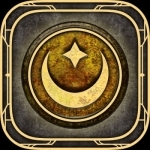
D&D Lords of Waterdeep
Games
App
*Cross platform online play! Join your friends on other platforms!* *New In-game chat feature. Stay...

Jamaica
Tabletop Game
This is a pirate-themed tactical race game with player interaction and side goals (e.g. detouring...
Boardgames PirateGames GatewayGames RacingGames BeautifulGames
Purple Phoenix Games (2266 KP) rated Cartagena in Tabletop Games
Dec 3, 2019
Avast and whatnot! Yar, this be a piratey-themed game of prison escape, and it be very good. You and ye mateys must escape a prison of Cartagena and reach the boat to sail to freedom! But do you have the resources available to navigate the treacherous tunnels to the outside? Or will you have to retreat to bolster your holdings for your final surge? This is Cartagena!
If you know me, you know I’m kind of a sucker for pirate games. Why? I don’t know. I’m not necessarily a fan of pirate-themed things in the real world, but it’s a gaming theme I truly enjoy. I don’t remember exactly where or from whom I heard of this game, but I am very glad I did because I really enjoy it.
During a game of Cartagena you play a “team” of pirates that are escaping a dungeon through a wacky tunnel to get to the getaway boat at the end. You do this by playing cards from your hand that match symbols printed on the tunnel tiles assembled in the middle of the table. When you play a card you must move one of your pirates – any one you wish – to the next closest unoccupied space on the board that matches the symbol on the card you played. If you play a card, let’s say a flag, and there is a pirate already on the next closest flag symbol, you keep moving your pirate along through the tunnel until you reach the next flag without a pirate on it. You have two actions on your turn and you will likely be playing two cards every turn to advance your pirates.
“Easy. This is great! But, now my starting hand is depleted and you told me I couldn’t draw a card at the end of my turn.” Correct. Herein lies the struggle and tension in the game.
If you do not have any cards in your hand, or if you just want to improve your hand, you must move one of your pirates backward through the tunnel to the next pirate behind you. If there is just one pirate when you arrive you draw one card. Two pirates two cards. Three pirates already there? Keep on truckin, matey. You need to continue backward to find a solitary or couple of pirates; there can never be more than three pirates on a space. You then take the amount of cards dependent on existing pirates and continue your turn.
Play continues like this until a player has successfully gotten their pirate crew to the boat and escapes the dungeons in Cartagena.
So like I said, I’m a sucker for pirate-themed games. However, this game could have so many other themes applied to it and it would work just as well. I do not necessarily feel like a pirate as I am playing, but I do appreciate the effort here. What I really enjoy about this game is the fact that it is mechanically very simple, so it works well with many different age groups. In fact, I am sure you can play this with gamers younger than the suggested age of 8 and be completely happy with the result. The rules are very light, the decisions are sometimes very heartbreaking if you do not plan ahead well enough. It will never be considered a brain burner, nor will it be the crown jewel of a collection or game night, but it is fun. Racing your opponents to the end of a tunnel to freedom, but also knowing that you will eventually need to regress to fuel future turns is a great little balancing exercise and I dig it, like a fine treasure chest.
Components? Well, the version we have is akin to the version on the main ratings graphic here, with that box art. The art in the game, however, is much more cartoony (see image below). It’s not BAD, but it’s not amazing either. I believe the newer version has much better art throughout. The cards are of decent quality, as are the tiles that make up the tunnel. The best components are the little pirateeples. Piraeeples? I’m never very good at the -eepling. All in all it’s a small game that packs up easily and quickly and is great to pull out pretty much any time you need a great filler. We at Purple Phoenix Games give this one a swashbuckling 13 / 18.
If you know me, you know I’m kind of a sucker for pirate games. Why? I don’t know. I’m not necessarily a fan of pirate-themed things in the real world, but it’s a gaming theme I truly enjoy. I don’t remember exactly where or from whom I heard of this game, but I am very glad I did because I really enjoy it.
During a game of Cartagena you play a “team” of pirates that are escaping a dungeon through a wacky tunnel to get to the getaway boat at the end. You do this by playing cards from your hand that match symbols printed on the tunnel tiles assembled in the middle of the table. When you play a card you must move one of your pirates – any one you wish – to the next closest unoccupied space on the board that matches the symbol on the card you played. If you play a card, let’s say a flag, and there is a pirate already on the next closest flag symbol, you keep moving your pirate along through the tunnel until you reach the next flag without a pirate on it. You have two actions on your turn and you will likely be playing two cards every turn to advance your pirates.
“Easy. This is great! But, now my starting hand is depleted and you told me I couldn’t draw a card at the end of my turn.” Correct. Herein lies the struggle and tension in the game.
If you do not have any cards in your hand, or if you just want to improve your hand, you must move one of your pirates backward through the tunnel to the next pirate behind you. If there is just one pirate when you arrive you draw one card. Two pirates two cards. Three pirates already there? Keep on truckin, matey. You need to continue backward to find a solitary or couple of pirates; there can never be more than three pirates on a space. You then take the amount of cards dependent on existing pirates and continue your turn.
Play continues like this until a player has successfully gotten their pirate crew to the boat and escapes the dungeons in Cartagena.
So like I said, I’m a sucker for pirate-themed games. However, this game could have so many other themes applied to it and it would work just as well. I do not necessarily feel like a pirate as I am playing, but I do appreciate the effort here. What I really enjoy about this game is the fact that it is mechanically very simple, so it works well with many different age groups. In fact, I am sure you can play this with gamers younger than the suggested age of 8 and be completely happy with the result. The rules are very light, the decisions are sometimes very heartbreaking if you do not plan ahead well enough. It will never be considered a brain burner, nor will it be the crown jewel of a collection or game night, but it is fun. Racing your opponents to the end of a tunnel to freedom, but also knowing that you will eventually need to regress to fuel future turns is a great little balancing exercise and I dig it, like a fine treasure chest.
Components? Well, the version we have is akin to the version on the main ratings graphic here, with that box art. The art in the game, however, is much more cartoony (see image below). It’s not BAD, but it’s not amazing either. I believe the newer version has much better art throughout. The cards are of decent quality, as are the tiles that make up the tunnel. The best components are the little pirateeples. Piraeeples? I’m never very good at the -eepling. All in all it’s a small game that packs up easily and quickly and is great to pull out pretty much any time you need a great filler. We at Purple Phoenix Games give this one a swashbuckling 13 / 18.
Purple Phoenix Games (2266 KP) rated Sequoia in Tabletop Games
Mar 17, 2021
Sequoias are some of the largest trees on Earth, growing hundreds of feet tall and living for thousands of years. A few summers ago I had the chance to visit northern California, and spent a day hiking in a forest full of redwoods and sequoias. The sheer size of the trees was breathtaking, and that hike remains high on my list of favorite vacation spots ever. So when I saw a small game based on those behemoth trees, I was instantly transported back to NorCal, and knew I had to give this game a shot!
Sequoia is a game of dice rolling and area majority in which players are trying to grow the largest trees across different forests. To setup the game, lay out the 11 forest cards on the table within reach of all players, and randomly assign a 1st and 2nd place token to each card. Each player receives 5 dice and 20 tree tokens in their chosen color. The game is ready to begin!
On each turn, players will simultaneously roll their 5 dice – keeping the results secret from all other players! After rolling, players will create 2 pairs using 4 of their dice (one will be left out). Everyone reveals their pairs at the same time, and will place a tree token on the card that matches each of their dice pairs. For example, my pairs might be a 5 and a 2, and a 6 and a 6, so I would put a tree token on the 7 and 12 forest cards. Play continues in this manner (rolling dice, creating pairs, and placing tree tokens), until players have placed all of their tokens. Once all tokens have been placed, the game moves to the scoring phase. For each forest card, the 1st and 2nd place tokens go to the players who have the most and 2nd most tree tokens on the forest card. Once all cards have been scored, count up final points, and the player with the most points wins!
I have to start off by saying that Sequoia really surprised me. I was expecting a fast, light game, and that’s what I got. But I also got a game with a fun amount of player interaction and strategy that keeps all players engaged. You may not know what forest cards a player will choose each turn, but you can see who has already played tree tokens to each card, which can help drive your strategy. Do you want to directly compete with everyone and really pile on the tokens to win 1st place on a card? Or do you want to spread your tokens around to as many forest cards as possible, and hopefully maximize points that are otherwise being ignored by opponents? Especially since the 1st and 2nd place tokens are randomly assigned and have differing values, you really don’t know which forests will yield the highest points until the end of the game. Sequoia is a Yahtzee-esque game that allows direct player interaction, and that elevates the overall gameplay for me.
Let’s talk about components for a minute. These components are great. The forest cards are a nice thick card stock. The tree tokens and 1st/2nd place tokens are all good chunky bits that will definitely hold up over time. And the dice are nice little d6’s that are easy to read and fun to manipulate. The color matching with the dice and tree tokens is also really nice, and I appreciate that uniformity for each player color. All in all, a high quality production for such a small game.
If you ask me, I think Sequoia is a perfect filler game. It is super fast to teach and play, the setup/cleanup takes literally seconds, and it provides an engaging and fun gameplay. Beyond being a filler game, it is a great small standalone game as well. Want something fast to play while the oven is pre-heating for dinner? Pull out Sequoia! I also love that it is simple enough for younger players to understand – it is a numbers game, but you can also visually see what your opponents are working towards, and that lends itself to a good amount of player interaction. Definitely a game that I can see getting a decent amount of table time in my group! Purple Phoenix Games gives this one a sky-rocketing 8 / 12. Check it out, you might be surprised!
Sequoia is a game of dice rolling and area majority in which players are trying to grow the largest trees across different forests. To setup the game, lay out the 11 forest cards on the table within reach of all players, and randomly assign a 1st and 2nd place token to each card. Each player receives 5 dice and 20 tree tokens in their chosen color. The game is ready to begin!
On each turn, players will simultaneously roll their 5 dice – keeping the results secret from all other players! After rolling, players will create 2 pairs using 4 of their dice (one will be left out). Everyone reveals their pairs at the same time, and will place a tree token on the card that matches each of their dice pairs. For example, my pairs might be a 5 and a 2, and a 6 and a 6, so I would put a tree token on the 7 and 12 forest cards. Play continues in this manner (rolling dice, creating pairs, and placing tree tokens), until players have placed all of their tokens. Once all tokens have been placed, the game moves to the scoring phase. For each forest card, the 1st and 2nd place tokens go to the players who have the most and 2nd most tree tokens on the forest card. Once all cards have been scored, count up final points, and the player with the most points wins!
I have to start off by saying that Sequoia really surprised me. I was expecting a fast, light game, and that’s what I got. But I also got a game with a fun amount of player interaction and strategy that keeps all players engaged. You may not know what forest cards a player will choose each turn, but you can see who has already played tree tokens to each card, which can help drive your strategy. Do you want to directly compete with everyone and really pile on the tokens to win 1st place on a card? Or do you want to spread your tokens around to as many forest cards as possible, and hopefully maximize points that are otherwise being ignored by opponents? Especially since the 1st and 2nd place tokens are randomly assigned and have differing values, you really don’t know which forests will yield the highest points until the end of the game. Sequoia is a Yahtzee-esque game that allows direct player interaction, and that elevates the overall gameplay for me.
Let’s talk about components for a minute. These components are great. The forest cards are a nice thick card stock. The tree tokens and 1st/2nd place tokens are all good chunky bits that will definitely hold up over time. And the dice are nice little d6’s that are easy to read and fun to manipulate. The color matching with the dice and tree tokens is also really nice, and I appreciate that uniformity for each player color. All in all, a high quality production for such a small game.
If you ask me, I think Sequoia is a perfect filler game. It is super fast to teach and play, the setup/cleanup takes literally seconds, and it provides an engaging and fun gameplay. Beyond being a filler game, it is a great small standalone game as well. Want something fast to play while the oven is pre-heating for dinner? Pull out Sequoia! I also love that it is simple enough for younger players to understand – it is a numbers game, but you can also visually see what your opponents are working towards, and that lends itself to a good amount of player interaction. Definitely a game that I can see getting a decent amount of table time in my group! Purple Phoenix Games gives this one a sky-rocketing 8 / 12. Check it out, you might be surprised!
